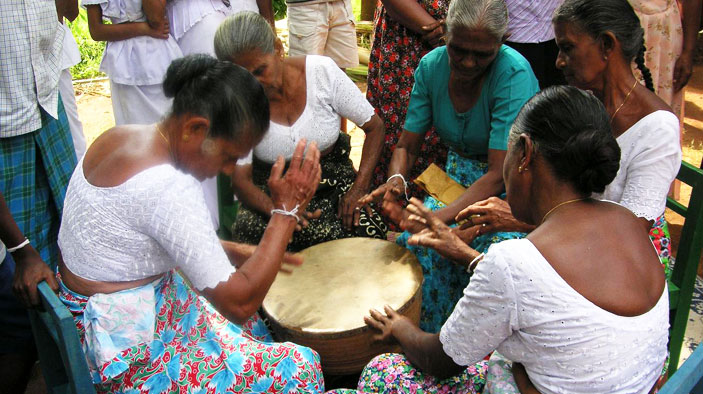Sri Lanka—Reintegration and Stabilization in the East and North (RISEN)
Client: U.S. Agency for International Development
Duration: 2009-2013
Region: Asia and the Pacific
Country: Sri Lanka
Solutions: Fragile States
After 25 years of civil war, the Government of Sri Lanka has regained control of its diverse provinces and peoples. The Eastern Province, an ethnically mixed, politically charged, and economically deprived area, was under the control of the Liberation Tigers of Tamil Elam (LTTE) and still erupting in periodic violence as recently as 2008. Constant battling between the Government of Sri Lanka, the LTTE, and the Karuna-faction, later known as Tamil Makkal Viduthalai Pulikal (TMVP), created a culture of violence in the Eastern Province. When the East was “liberalized” by the government in 2007 and subsequent elections empowered the TMVP, underlying resentment from the local people and lack of follow-through by the government created an environment ripe for further instability. The U.S. Agency for International Development (USAID)’s Reintegration and Stabilization in the East and North (RISEN) program implemented a wide range of conflict prevention and mitigation measures to create and promote stability. RISEN’s goal was to improve personal and economic security in targeted communities in the East, providing support and opportunities for at-risk youth, and building public confidence that core conflict issues are being addressed by the Government of Sri Lanka.

Sample Activities
-
Identify communities where militant recruitment has been high and—with the International Organization for Migration, the Government of Sri Lanka, and other donors—develop programs to address needs identified by the communities. All programs promote collaboration between the local authorities and the public to address security issues.
-
Reintegrate conflict-affected men and women into civilian life by providing training for market-driven jobs and job-related guidance, increasing access to services, and, in some cases, delivering psychosocial counseling.
-
Promote creative approaches to gathering and disseminating news and information to improve public confidence in the transition.
Select Results
-
After several months of life skills training and counseling, young people from highly conflict-affected, isolated areas are now working as music teachers, hotel staff, construction machinery operators, or handicraft artisans. These young people have had positive feedback from their communities, and other youth in those communities are increasingly ready to engage with future income-generating activities.
-
Over two years and with $750,000, the team launched the Sexual Assault Forensic Evidence (SAFE) program, which trained 136 medico-legal offices nationwide, distributed 4,500 SAFE kits to all 39 government hospitals, conducted eight district awareness trainings on access to medico-legal services, and provided resources and equipment to all public universities and medical faculties in the country.
-
In response to the intense floods of 2010, the project allocated $394,793 to flood response activities; encouraged Tamil and Muslim at-risk youth to work together in the distribution of non-food items to flood- and conflict-affected communities; registered ex-combatants supporting their communities through hygiene kits; provided boats and essential materials to evacuate communities cut off by rising waters; and helped the central government register the needs of the affected population.
-
Brought 70 community members from Tamil and Sinhalese villages together to be trained to help renovate a three-kilometer stretch of road and two large culverts. Ten Muslim and Tamil community members who were already trained on rural road technology assisted with on-site training. By working together on this project, the people of the two villages began to heal the wounds of war. Over a period of three months, Tamils and Sinhalese worked together—building the road, sharing meals, and getting to know each other’s personal stories.
Featured Links
RELATED CONTENT:
Honduras—Asegurando la Educación (Securing Education)
Asegurando la Educación worked to improve schools’ ability to prevent violence, strengthened local networks that increase school safety, and built the capacity of the Ministry of Education and social service agencies to respond to school-based violence.
Read More